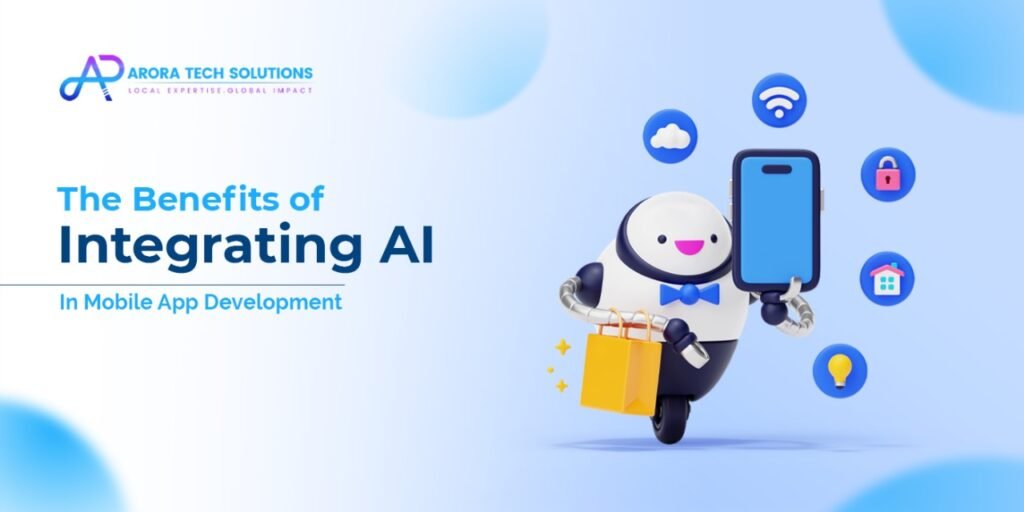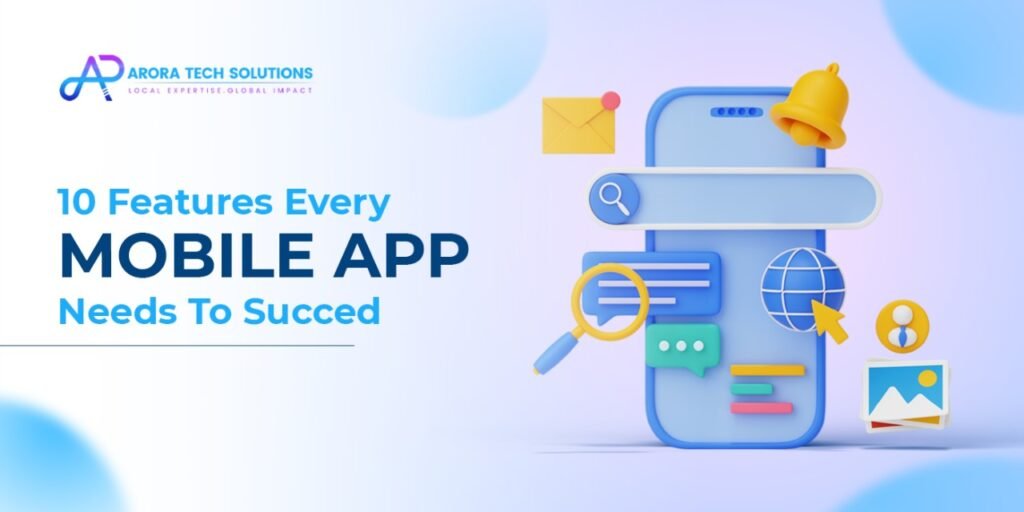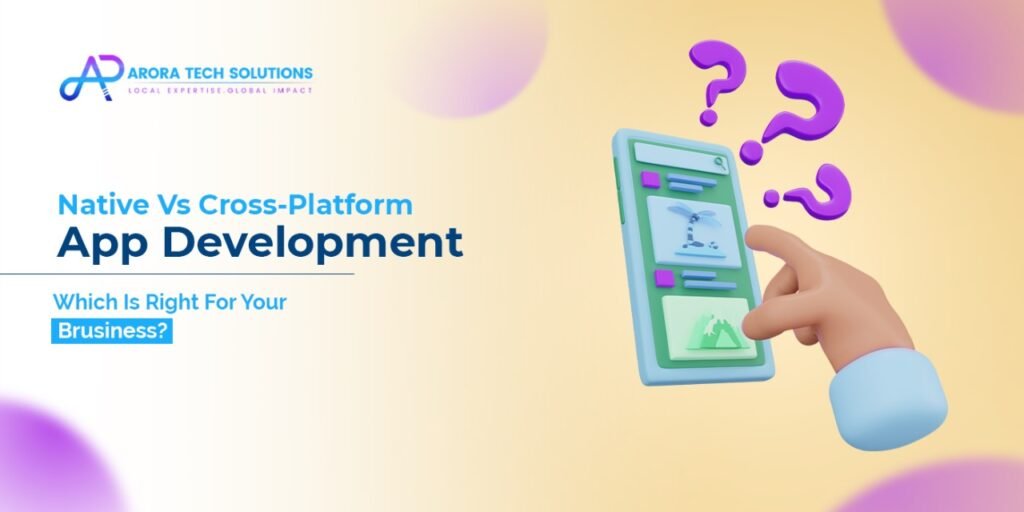The Benefits of Integrating AI in Mobile App Development
Artificial Intelligence (AI) is revolutionizing the way mobile apps are designed, developed, and utilized. By integrating AI technologies, developers can create smarter, more efficient, and highly personalized applications that cater to user needs in innovative ways. Here’s an in-depth look at how AI is transforming mobile app development and the key benefits it offers.
1. Enhanced User Experience (UX)
AI enables apps to deliver highly customized experiences by analyzing user behavior and preferences.
- Personalization: AI algorithms suggest content, products, or features tailored to individual users, enhancing engagement.
- Intuitive Interfaces: Features like voice assistants and predictive typing create seamless interactions.
- Behavior Analysis: AI predicts user needs, improving app navigation and functionality.

2. Advanced Data Processing and Insights
Mobile apps can leverage AI to process large volumes of data and derive actionable insights.
- Real-Time Analytics: AI-driven tools analyze user behavior instantly, enabling real-time improvements.
- Decision Making: Apps can use insights to provide intelligent recommendations, such as financial tips in budgeting apps.
- Predictive Analysis: AI anticipates trends, helping businesses stay ahead of customer demands.
3. Smarter Automation
AI automates repetitive tasks, saving time and improving efficiency.
- Chatbots: AI-powered chatbots handle customer queries 24/7, providing instant support.
- Scheduling: Apps like calendars and reminders use AI to automate tasks based on user habits.
- Email and Notification Management: AI ensures relevant and timely communication.
4. Improved Security and Fraud Detection
AI enhances app security, reducing the risk of breaches and fraudulent activities.
- Biometric Authentication: Facial recognition and fingerprint scanning powered by AI provide robust security.
- Fraud Detection: AI analyzes patterns to identify and block suspicious activities, especially in banking and e-commerce apps.
- Threat Prediction: Predictive models flag vulnerabilities before they can be exploited.
5. Intelligent Search Functionality
AI-powered search features make finding information faster and more accurate.
- Voice Search: Voice recognition improves convenience and accessibility.
- Contextual Search: AI understands user intent, delivering relevant results even with incomplete queries.
- Visual Search: Apps like shopping platforms use AI to allow users to search for items using images.
6. Enhanced Personalization Through Machine Learning
Machine Learning (ML), a subset of AI, enables apps to learn from user interactions and refine their functionalities over time.
- Dynamic Content Recommendations: Streaming apps like Netflix use ML to suggest shows and movies.
- Customized Offers: E-commerce platforms provide deals based on shopping patterns.
- Adaptive Learning: Education apps adjust difficulty levels based on user performance.
7. Better Voice Recognition and Natural Language Processing (NLP)
AI-driven NLP makes communication between apps and users more natural and effective.
- Voice Assistants: Apps integrate with AI tools like Siri, Alexa, or Google Assistant for hands-free operation.
- Multilingual Support: AI-powered translation enables apps to communicate with users in their preferred language.
- Sentiment Analysis: NLP gauges user sentiment in reviews and feedback, enabling businesses to respond effectively.
8. Faster Development and Testing
AI accelerates the mobile app development process.
- AI-Assisted Coding: Tools like GitHub Copilot streamline coding, reducing development time.
- Automated Testing: AI detects bugs and optimizes performance faster than traditional methods.
- Prototype Optimization: AI analyzes prototypes and suggests improvements early in the development process.
9. Greater Accessibility for Users
AI empowers apps to be more inclusive, catering to diverse user needs.
- Voice Commands: AI helps users with limited mobility or vision navigate apps effectively.
- Real-Time Translations: Apps like language learning platforms break down language barriers.
- Assistive Technologies: Features like live captions and text-to-speech make apps usable for differently-abled individuals.
10. Competitive Advantage
Incorporating AI gives businesses a significant edge in the competitive app market.
- Innovative Features: AI sets your app apart with capabilities like AR integration and predictive suggestions.
- User Retention: Smart features enhance satisfaction, encouraging users to return.
- Scalability: AI-driven insights allow businesses to scale apps effectively based on user demand.
Conclusion
The integration of AI in mobile app development is no longer a luxury but a necessity for businesses aiming to thrive in a digital-first world. By enhancing user experiences, improving efficiency, and driving innovation, AI unlocks the full potential of mobile applications. Whether you’re building an e-commerce platform, a healthcare app, or an entertainment service, incorporating AI can transform your app into a powerful, user-centric solution.
Now is the time to embrace AI in your app development strategy and stay ahead of the competition! 🚀


